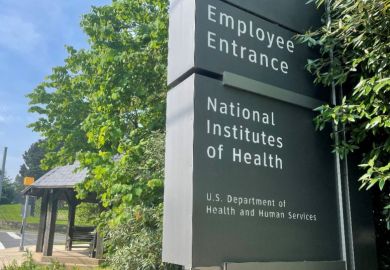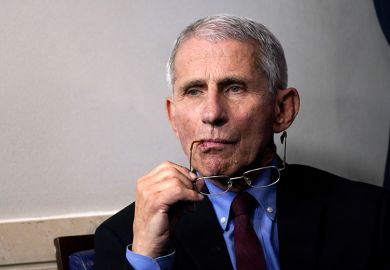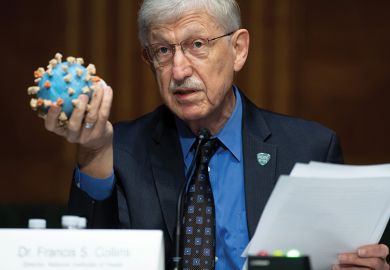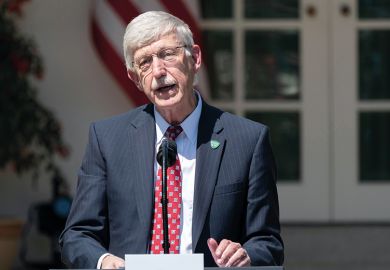The US Senate has moved ahead after months of delays towards confirming Monica Bertagnolli to become the new director of the National Institutes of Health, while treating the Harvard-trained surgeon to an extensive menu of the political battles she will face heading the world’s largest funder of medical research.
The Senate’s Education Committee held a two-hour question-and-answer session with Dr Bertagnolli and scheduled a vote next week in which the panel is expected to send the Biden administration nomination to the full Democrat-controlled chamber for its likely approval next month.
Dr Bertagnolli, currently head of the NIH’s largest division, the National Cancer Institute, would then end the year-long leadership void created when Francis Collins stepped down as one of the agency’s longest-serving directors.
Throughout the Senate encounter, Dr Bertagnolli was urged by senators to make commitments on some of the nation’s hot-button policy debates – in areas that include prescription drug prices, transgender youth, the origins of Covid, and stem cell research – that would largely sit beyond her authority as NIH director.
But Dr Bertagnolli was also pressed on many areas of the NIH’s own budgeting and research emphasis, covering a variety of disease categories, and reflecting the longstanding and sometimes difficult intersection between politics and science over what fields of human health and tactical approaches to them that the NIH prioritises in academia. She coped by agreeing on the need in each instance as senators raised them, without making specific commitments.
The incoming NIH leader also has her own career and personal emphasis: in addition to heading the NCI, the former chief of surgical oncology at the Harvard University-affiliated Dana-Farber Cancer Institute recently battled breast cancer – completing a course of treatment that she assured the senators has given her an “excellent” prognosis.
The demands by senators merely reflected the typical back-and-forth between elected officials and the administrators charged with investing public money, said Richard Turman, former associate director for budget at the NIH who now serves as president of ACT for NIH, a private advocacy group of leading political and scientific figures who lobby for NIH funding.
Congress does decide as a political exercise how to allocate the NIH’s annual budget – now about $47.5 billion (£39.1 billion) – among its individual institutes focused on disease-related categories, Mr Turman acknowledged. But NIH scientific experts generally decide priorities and approaches within the institutes, he said. “The best science within is up to NIH,” he said.
Another NIH expert, Stuart Buck, executive director of the Good Science Project, a coalition of academic experts seeking to improve NIH functioning, was less sure about the question of politics interfering with the best possible science, and how Dr Bertagnolli might be able to prevent that.
The confirmation hearing, Dr Buck said, was “a microcosm of why multiple NIH directors have said that the agency is pulled in too many directions to be able to have a coherent approach on macro issues”.
“Within a very short time period, Bertagnolli was asked to commit to doing more as to everything under the sun: paediatric cancer, medication-assisted treatment for opioid use, funding more rural and Midwestern institutions, clinical trials for ALS [amyotrophic lateral sclerosis], menopause research, antibiotic resistance, infectious diseases like tuberculosis, long Covid, lowering drug pricing – or, from another senator, not doing anything to lower drug prices – ethics review of fetal tissue research, screen time for children, potential pandemic pathogens, and more.”
That level of political insertion has direct implications for academic science, Dr Buck said. “If we want academic biomedical scientists to do the best science they can,” he said, “we need for NIH to have a coherent agenda and budget that isn’t being yanked in different directions every year.”
Register to continue
Why register?
- Registration is free and only takes a moment
- Once registered, you can read 3 articles a month
- Sign up for our newsletter
Subscribe
Or subscribe for unlimited access to:
- Unlimited access to news, views, insights & reviews
- Digital editions
- Digital access to THE’s university and college rankings analysis
Already registered or a current subscriber?








